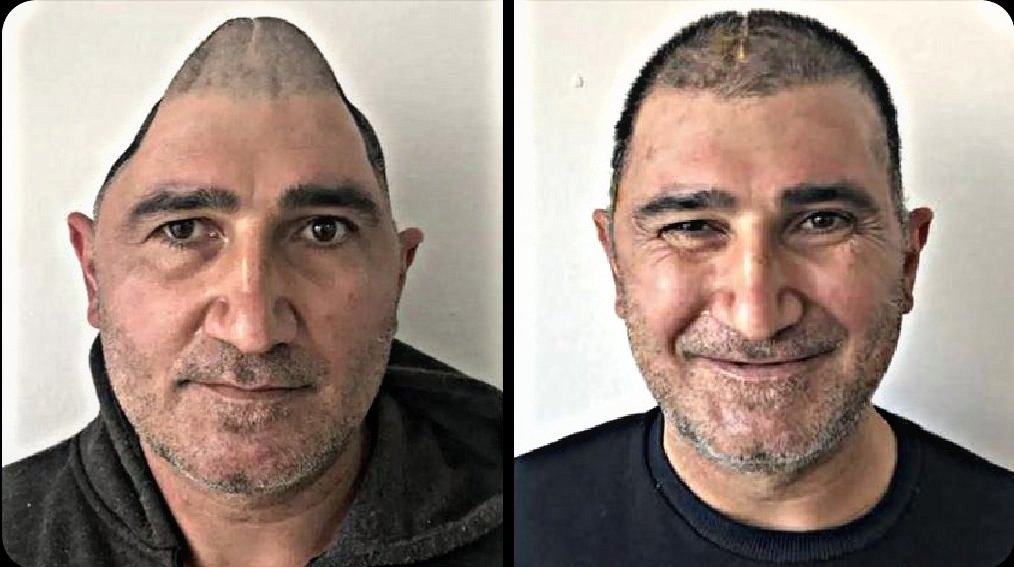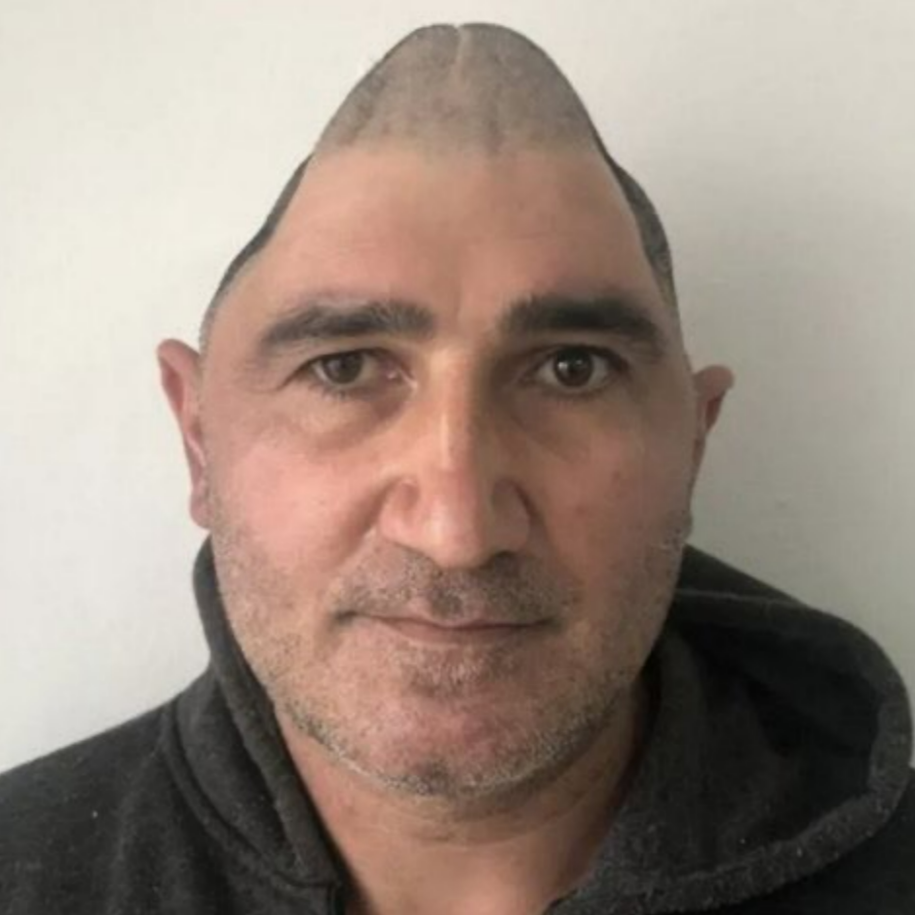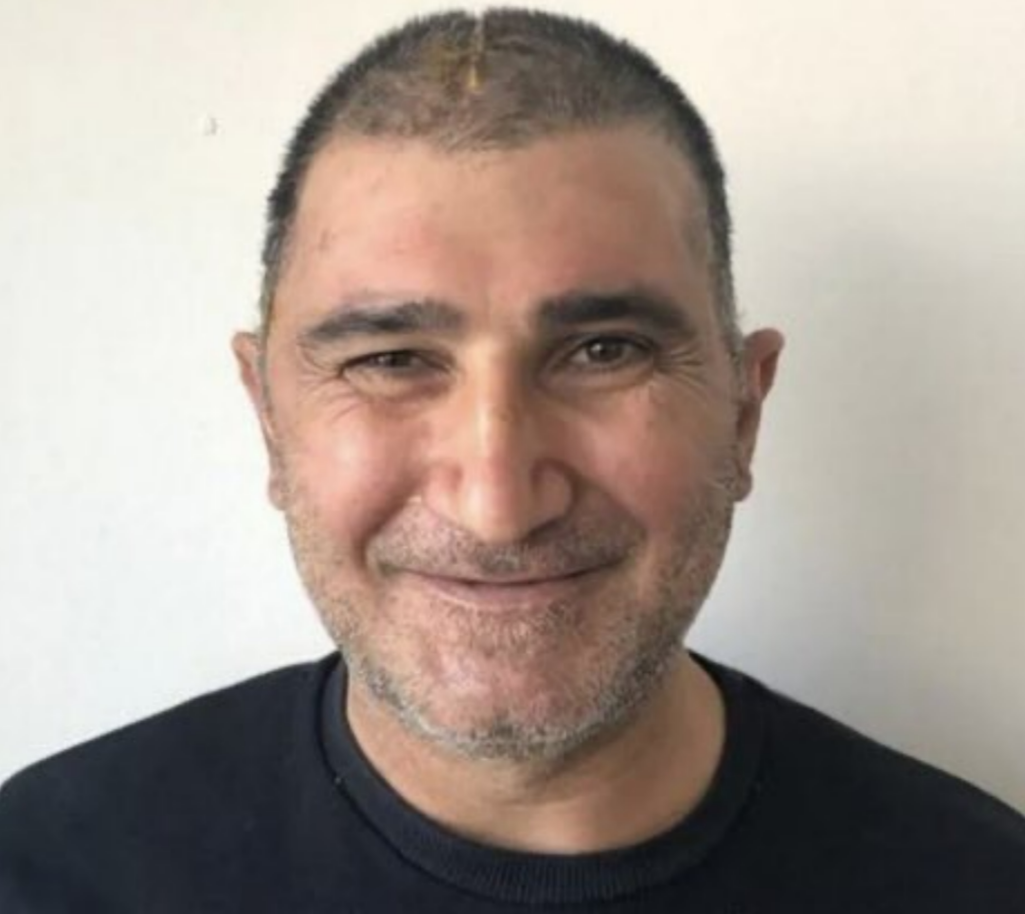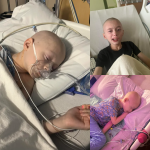Turkish Man Undergoes Groundbreaking 3D Skull Reconstruction After Devastating Fall

A 45-year-old Turkish man, Ali Çiftçi, has made a remarkable recovery after a life-altering accident that left him with severe injuries and the loss of most of his skull. His story has since become an inspiring example of how modern technology and medical expertise can restore both life and hope.
The incident occurred when Ali fell from the third floor during a struggle with a thief, resulting in catastrophic head trauma. Doctors later confirmed that 83 percent of his skull had been damaged — a condition that would have been impossible to treat effectively in the past. He was rushed to intensive care, where he spent months in critical condition, undergoing multiple surgeries just to survive.

For a long time, his future remained uncertain. Ali’s physical pain was compounded by emotional exhaustion, as he struggled to accept the changes to his appearance and the limits placed on his daily life. But a breakthrough came when his medical team proposed a revolutionary solution — the use of a custom-made 3D-printed titanium implant to rebuild his skull.
Using advanced imaging and printing technology, surgeons designed an implant tailored precisely to his anatomy. After careful preparation, the surgical team successfully attached the titanium plates, restoring both the shape and the protection of his skull. The operation was hailed as a major success, marking a powerful collaboration between science and medicine.

When the bandages were finally removed, Ali’s transformation was extraordinary. The reconstruction not only restored his physical appearance but also revived his confidence and outlook on life. For the first time since the accident, he felt whole again.
Today, Ali continues his recovery surrounded by his family, expressing deep gratitude to the medical professionals who made his healing possible. His case has drawn attention from across the medical community, demonstrating how cutting-edge 3D printing technology can change outcomes for patients once considered beyond help.










